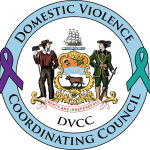
State of Delaware – Domestic Violence Coordinating Council
Children Resources
Court Based Advocacy | Educating Delaware Students | Department of Justice – Family Division | Family Visitation Centers |LGBT Resources | Protection From Abuse (PFA) Orders | PFA_vs_NoContact | Teen Dating Resources
Children who witness domestic violence may have the following symptoms
- eating, sleeping disorders;
- mood related disorders such as depression, emotional neediness;
- over compliance, clinginess, withdrawal;
- aggressive acting out; destructive rages;
- detachment, avoidance, a fantasy family;
- somatic complaints;
- finger biting, restlessness, shaking, stuttering;
- school problems, and
- suicidal idealizations.
How Domestic Violence Affects Children
Children of all ages can be deeply affected by domestic violence
- Children who witness domestic violence are more likely to be in an abusive relationship when they grow up – whether as the abuser or the abused; and often experience anxiety, depression, eating and sleeping disorders and developmental delays and behavior problems.
- Delaware law recognizes that a child can be a witness to an act of domestic violence by sound as well as sight, acknowledging that a child may have only heard the violent act from another room, but nonetheless be a witness who is emotionally impacted by it. (Title 11, Section 1102)
Infants – may not develop the appropriate attachments to their caretakers who are crucial to their development and may suffer “failure to thrive.”
Preschool Children – may regress developmentally and suffer sleep disturbances including nightmares.
School age Children – develop behavioral problems including: depression, anxiety, violence toward peers and difficulty with authority. In some cases the anxiety level can be so high children are afraid to attend school for fear of what will happen to the abused parent or younger siblings when they are not home.
Adolescents– have increased risk for repeating abusive behavior patterns in their dating relationships.
They are also at increased risk for alcohol and drug abuse, criminal behavior and eventual entry into the criminal justice system.
Adolescents are at risk of academic failure, school drop-out, delinquency, and substance abuse. Some investigators have suggested that a history of family violence or abuse is the most significant difference between delinquent and non delinquent youth.
Child Abuse Report Line
1-800-292-9582
All suspected child abuse and neglect must be reported to the 24-hour Division of Family Services (DFS) Child Abuse and Neglect Report Line or online. You may also call any Law Enforcement Agency or 911, but not in lieu of contacting DFS. You are not required to provide proof. Anyone who makes a good faith report based on reasonable grounds is immune from prosecution.
Call 2-1-1 if you need to be connected to resources within the community to help you manage issues whether you are facing multiple challenges such as single parenthood, or need access to low income services and support (i.e. POC, Medicaid, TANF).
Child Mental Health Mobile Crisis (under age 18)
1-800-969-4357
The victim service is located throughout the State in the Crisis Intervention Service Centers, the Community Mental Health Centers, the Recovery Response Center and Emergency Rooms. Crisis Intervention Service (CIS) staff are available 24 hours a day to assist people, 18 years and older, with severe personal, family or marital problems.
Futures Without Violence
www.futureswithoutviolence.org
Phone: 415-678-5500
TTY: 1-866-678-8901
Futures works to promote resiliency for children exposed to violence. They are at the forefront of policy and research to advance promising practices in health care, education, law enforcement, and in the community that help children and youth heal and thrive.
Healthy Relationship Website – Love is Respect
www.loveisrespect.org
Text loveis to 22522*
866-331-9474
Highly-trained advocates offer support, information and advocacy to young people who have questions or concerns about their dating relationships. We also provide information and support to concerned friends and family members, teachers, counselors, service providers and members of law enforcement. Free and confidential phone, live chat and texting services are available 24/7/365
Rape Crisis Hotlines
New Castle County
YWCA Sexual Assault Resource Center (SARC) 1-800-773-8570
Provides complete, free and confidential rape crisis victim service to sexual assault survivors aged 12 and older and their non-offending family members, friends and partners throughout the State of Delaware.
Kent & Sussex Counties
ContactLifeline Rape Crisis 302-761-9100
Assists survivors of a sexual assault, regardless of whether it just happened or happened many years ago with telephone counseling; information and referral; in-person support and assistance at hospitals police stations, and courts; plus, individual counseling for survivors, friends and family.






